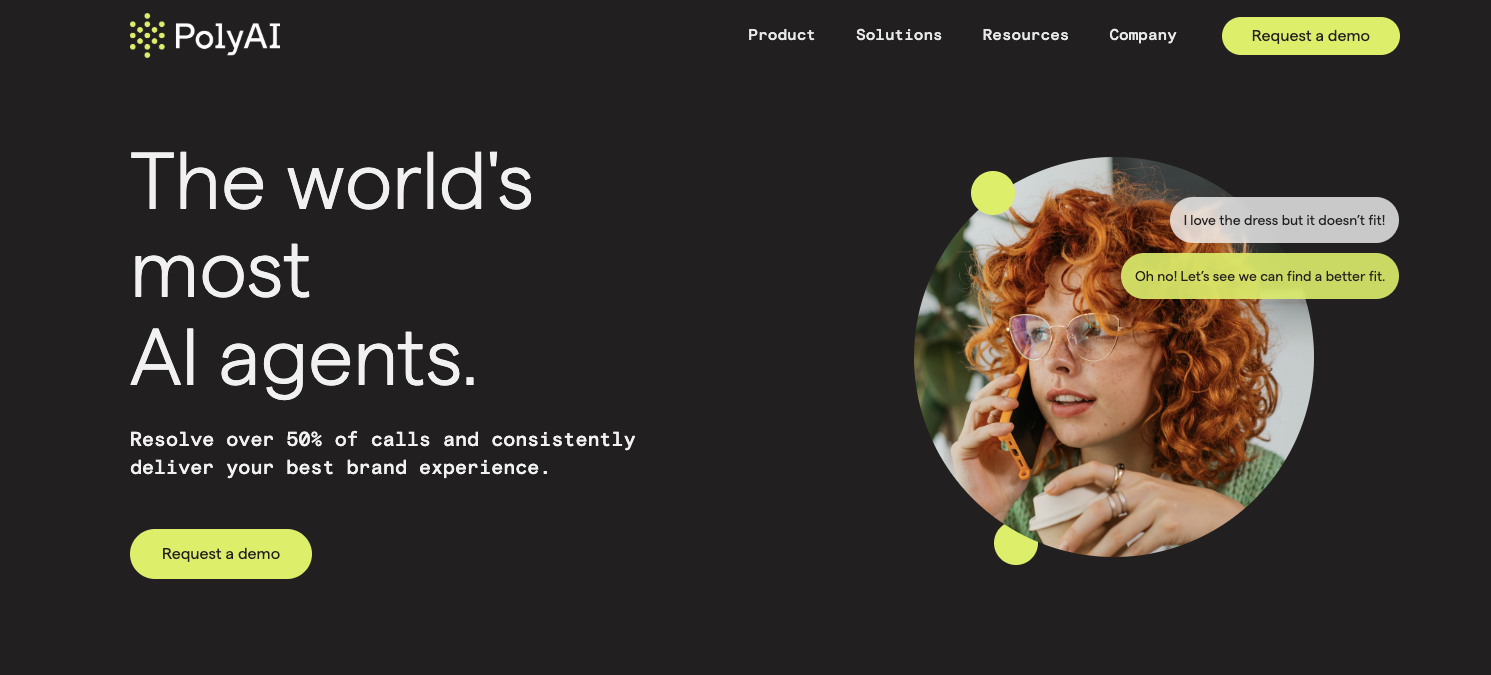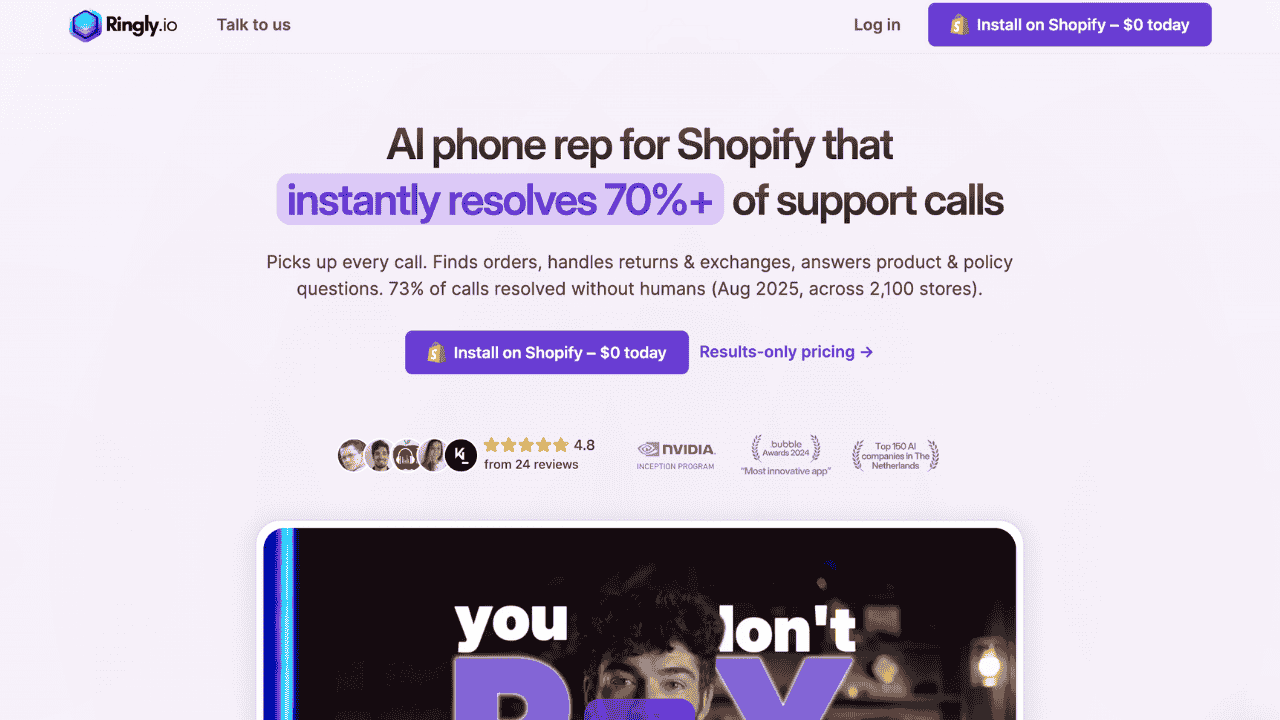Still unsure whether Play AI or Poly AI is right for you?
We’ll break down:

Founded in 2023 and headquartered in Dubai, Play AI is pioneering the integration of artificial intelligence within the gaming industry. Led by founder Ramees PS, Play AI empowers creators to deploy gaming-focused AI, enables players to monetize their gameplay, and helps games deliver hyper-personalized experiences through its modular chain platform.
Also read: Best Play Alternatives
Play AI targets game developers, studios, and gamers seeking advanced monetization tools and next-gen interactive features. Its core offerings include an incentivized testnet for sharing gameplay data (Collective), middleware for seamless AI integration into games.

Their technology delivers natural, conversational voice assistants that understand intent with industry-leading accuracy, enabling businesses to automate complex calls while maintaining a human-like interaction.
Also read: Best Poly Alternatives
With over 200 employees and a strong presence across London, New York, San Francisco, and Belgrade, PolyAI serves enterprise clients globally.
In the following section, we will explore PolyAI’s features, pros and cons, pricing models, and user reviews compared with Elevenlabs Conversational AI and Ringly.io to help you determine the best fit for your business needs.
Note: The pricing information below is accurate at the time of writing and may be subject to change. For the most up-to-date pricing, please visit each company's pricing page.
Contract Length: No long-term contracts required. Users can pay monthly. Annual commitments are available with discounts for some user groups (e.g., students/educators/non-profits get a flat discount).
Cancellation Fees: No cancellation fees mentioned for standard downgrades/cancellations.
Refund Policies: Refunds are only available if requested within 24 hours of purchase, provided usage is under 5,000 characters. No refunds after this threshold or for change of mind/dissatisfaction.
Ringly.io has simple, usage-based pricing with no hidden fees or long-term commitments. Test drive it risk-free for 14 days, then scale up or down on month-to-month terms—or book a demo for fully tailored enterprise support.
"Super easy to work with" – Ringly.io reviewer
The interface is intuitive... even if you're not tech savvy you can set up things quickly...
"Not as flexible as competitors" – Anonymous reviewer
While Play AI works great for standard e-commerce tasks... it lacks some advanced customization options that other platforms offer...
"Helps me organize my daily tasks" – G2 Reviewer
It helps in automating various applications and improve efficiency...
"UI is still not very good" – G2 Reviewer
The UI is still not very good or as good as other products in the industry...
Additional community feedback from YouTube and Reddit highlights:
Users appreciate Poly AI's freedom from content filters compared to competitors. Some find memory limitations frustrating—having to re-explain context during longer conversations.
Ringly.io is known for its simplicity, and a focus on e-commerce, with features like order status lookups. It has a 4.8 star rating from 12 reviews on Product Hunt and other platforms.
"it stands out significantly ahead" - Bertrand, Director. We are at the initial stage of testing and have made only a few calls so far. Consequently, I have rated the product with four stars for now. However, I must express that the product has shown significant promise. When compared to competitors, it stands out significantly ahead.
"This is such a great product" - Jim Miranda, Founder. This is such a great product. I have been with you for less than a week and already closed 3 deals with it."
"It really sounds like a human" - Laix, Founder. Tried Ringly.io today and the quality of the phone calls surprises me! It really sounds like a human, and it reacts really fast. Will need to deploy it in action to see the full capabilities.
"How to automate customer service? -> Ringly.io" - Sidra Husnain, Founder.

Best for Shopify stores looking for the best way to offer 24/7 AI phone support at a fraction of the cost.
How it went when I tried setting up Ringly:
After I installed the Shopify app, the only thing I had to do was to upload my data to the knowledge base. (website was uploaded automatically)
After I did that, I could already speak to my agent via a web call.
Setting it live was as simple as picking a phone number with my area code from the dashboard. I was able to connect the number with 1 click. (The number is also free and included)
There was not really anything else to the setup.
They claim that out of the box, their agents resolve an average of 73% of support calls. They back that up with data from over 2,100 active Shopify stores.
Signup -> onboarded took only 4 minutes and 12 seconds. Most of that time was spent waiting for the knowledge to be uploaded.
Over the first 2 weeks I used it (14-day free trial), it resolved 76% of my calls on its own.
The rest of the calls were escalated to a support ticket by my agent.
(update: the more calls you get, the smarter it gets. As of today, my resolution rate is 79%.)
Standout Features (pros):
Pricing is on a results basis; you don't pay until your agent has at least a 60% resolution rate
Shopify integration is native. It will allow your agent to solve order status and refund requests on the phone.
Reviews are overall very positive, mainly because of the results-based pricing. If you don't pay unless you get results, every customer gets results.
Cons:
What’s unique about Ringly is that it is the first AI phone support tool built for Shopify.
Editors note: Ringly.io opened 5 spots for Shopify stores to pay $0 until AI resolves 60% of your support calls. You can book a call to claim it.
Start your 14-day free trial of Ringly.io →
Want to compare other players in the market? Check out our other comparisons: